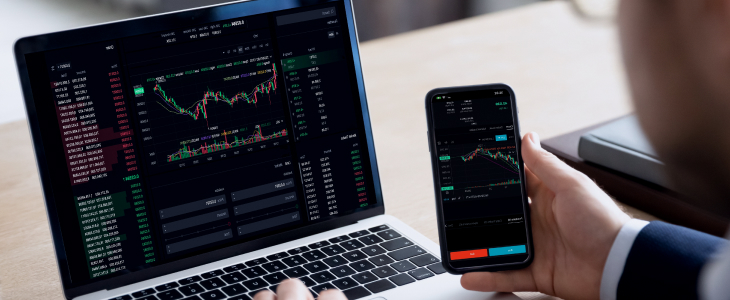
Mastering Forex Trading Psychology: Your Key to Success
In the realm of forex trading, where the stakes are high and the market is highly volatile, the significance of trading psychology cannot be overstated. forex trading psychology Top MT4 Trading Apps can provide the necessary tools to help traders measure their performance and manage their trades effectively; however, without a solid grasp of trading psychology, even the best tools can fail to translate into successful trading outcomes. This article delves deep into the various facets of forex trading psychology, offering insights and strategies that traders can employ to enhance their performance and make better trading decisions.
Understanding Trading Psychology
Trading psychology refers to the emotional and mental aspects that affect a trader’s decision-making processes. It is influenced by personal emotions such as fear, greed, overconfidence, and anxiety, which can significantly alter a trader’s ability to act rationally in their investments. One common misconception is that trading is merely a mathematical or analytical challenge; however, emotions play a substantial role in trading outcomes. Understanding these psychological factors is crucial for anyone looking to succeed in forex trading.
Common Psychological Pitfalls in Forex Trading
Many traders, particularly those who are new to the market, fall into psychological traps that can lead to poor trading decisions. Below are some common pitfalls to be aware of:
- Fear of Missing Out (FOMO): Traders often find themselves acting impulsively to enter positions out of fear that they will miss a profitable opportunity. This can lead to chasing trades rather than sticking to a strategic plan.
- Overconfidence: After a few successful trades, many traders may develop overconfidence, causing them to disregard risk management principles and take excessively high-risk trades.
- Loss Aversion: The fear of losing money can lead to hesitation in executing trades. This often results in missed opportunities and poor timing.
- Revenge Trading: Some traders attempt to break even after losses by overtrading or taking high-risk positions to recover their losses, which frequently exacerbates the initial problem.
Developing Strong Trading Psychology
To overcome these hurdles, traders must work on developing a robust trading psychology. Here are some techniques to cultivate mental resilience:

1. Create a Trading Plan
A comprehensive trading plan is essential for professional trading. A plan should include entry and exit strategies, risk management rules, and criteria for analyzing trades. By adhering to a strategic plan, traders can minimize emotional decision-making.
2. Practice Mindfulness
Incorporating mindfulness techniques can help traders maintain calm and clarity amid market chaos. Practicing meditation, deep breathing, or even simple awareness exercises can enhance focus and reduce anxiety during trading scenarios.
3. Set Realistic Goals
Setting achievable goals helps to maintain motivation and prevent frustration. Traders should establish both short-term and long-term goals that are specific, measurable, and attainable.
4. Keep a Trading Journal
Maintaining a trading journal allows traders to reflect on their decisions, understand their emotional triggers, and learn from their mistakes. Reviewing past trades helps in recognizing patterns and improving future decision-making.
Emotional Control Techniques
Developing emotional control is vital for effective trading. Here are a few techniques that can assist with this:

1. Use Stop-Loss Orders
Implementing stop-loss orders is a crucial risk management tool that can help minimize losses during unfavorable price movements. By setting predetermined exit points, traders can mitigate the emotional stress associated with watching their losses grow.
2. Limit Exposure
Traders should be mindful of their exposure to the market. This means not overleveraging and placing a sensible amount of capital at risk on any single trade.
3. Take Breaks
When emotions run high, stepping away from trading can be beneficial. Taking regular breaks allows traders to reset their mindset and return to the market with a clearer perspective.
The Importance of Continuous Learning
The forex market is always evolving, and continuous education is critical for a trader’s success. Staying informed about market trends, new strategies, and changes in regulations can empower traders to make better-informed decisions. Moreover, understanding market psychology—how other traders might react to events—can provide valuable insights into price movements.
Conclusion
Success in forex trading is not solely reliant on analytical skills or market knowledge but also on mastering the psychological components that underpin trading behavior. By recognizing and addressing psychological pitfalls, developing emotional control, and committing to ongoing learning, traders can harness the potential of their minds to enhance their trading strategies. In a market where the psychological edge can make all the difference, investing time and effort into cultivating a strong trading mindset is essential for long-term success.
